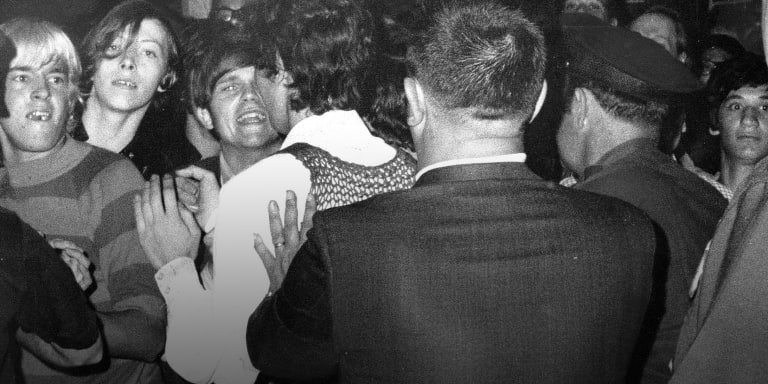In the early hours of 28 June 1969, New York City police raided the Stonewall Inn, a gay club located in Greenwich Village in New York City, sparking a riot involving patrons, bar staff and local residents who had grown increasingly frustrated by continuing police targeting and rough treatment of people in the neighbourhood.
The events of 28 June lead to six days of protests and violent clashes with police outside the bar on Christopher Street and in the surrounding area.
Bars like The Stonewall Inn were a refuge for LGBT+ people in New York in the 1960s, where "solicitation of same-sex relations" were illegal. These establishments allowed LGBT+ people to express themselves openly and socialise without fear of persecution or reprisal.
On 28 June, fed up with constant police harassment and social discrimination, angry patrons and local residents hung around outside of the bar rather than disperse, becoming increasingly agitated as the events unfolded and people were aggressively manhandled by the police. During the violent arrest of a patron, the crowd began throw bottles, stones and other objects at the police. Moments later, a full riot involving hundreds of people broke out had to be broken up by riot police and the New York Fire Department.
Actions outside The Stonewall Inn continued for the next 5 days, often involving thousands of people.
On the first anniversary of the uprising, thousands of people marched from The Stonewall Inn as part of the United States' first gay pride parade.
